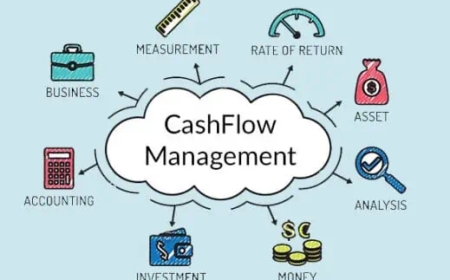How to Plan a Budget for a New Baby

Welcoming a new baby into the family is a life-changing event that brings immense joy and excitement. However, it also comes with significant financial implications. From diapers and formula to childcare and medical expenses, the costs can quickly add up. Planning a budget for a new baby is essential to ensure that you are financially prepared for the added expenses. In this article, we will guide you through the process of creating a budget that works for you and your growing family.
The first step in planning a budget for a new baby is to assess your current financial situation. Take stock of your income, expenses, debts, and savings. Understanding your financial landscape will help you identify areas where you can cut back and allocate funds towards baby-related expenses. Consider using the 50/30/20 rule as a guideline: 50% of your income towards necessary expenses like rent and utilities, 30% towards discretionary spending, and 20% towards saving and debt repayment.
Next, estimate the costs associated with having a new baby. These can be broadly categorized into one-time expenses and ongoing expenses. One-time expenses include items like a crib, stroller, and car seat, while ongoing expenses include diapers, formula, childcare, and healthcare. Research and list down the estimated costs of these items to get an idea of the total expenses. You can also talk to other parents, join online forums, or consult with a financial advisor to get a more accurate estimate.
Diapers and formula are two of the biggest ongoing expenses for new parents. Disposable diapers can cost around $80-100 per month, while cloth diapers require an initial investment but can be more cost-effective in the long run. Formula can cost anywhere from $50-100 per month, depending on the type and brand. Breastfeeding is a cost-effective option, but it may require some initial investment in a breast pump and other accessories.
Childcare is another significant expense for many families. Daycare costs can vary widely depending on the location, quality, and type of care. On average, parents can expect to pay around $500-1000 per month for full-time daycare. You can also consider alternatives like nannies, babysitters, or stay-at-home parenting.
Medical expenses are another important consideration. Prenatal care, hospital delivery, and postnatal care can add up quickly. Check with your insurance provider to understand what is covered and what is not. You may also need to budget for out-of-pocket expenses like copays, deductibles, and prescriptions.
Once you have estimated the costs, create a budget plan that allocates funds towards baby-related expenses. Consider setting up a separate savings account or fund specifically for baby expenses. You can also look into tax-advantaged savings options like 529 plans or Health Savings Accounts (HSAs).
To reduce costs, consider the following tips: buy second-hand baby gear, use cloth diapers, breastfeed, and cook meals at home instead of ordering takeout. You can also look into assistance programs like the Supplemental Nutrition Assistance Program (SNAP) or Temporary Assistance for Needy Families (TANF) if you are eligible.
Finally, review and adjust your budget regularly to ensure that you are on track. As your baby grows, your expenses will change, and you may need to make adjustments to your budget. Stay flexible, and be prepared to make changes as needed.
By following these steps and creating a comprehensive budget plan, you can ensure that you are financially prepared for the arrival of your new baby. With careful planning and smart financial decisions, you can enjoy this exciting time without breaking the bank.



















